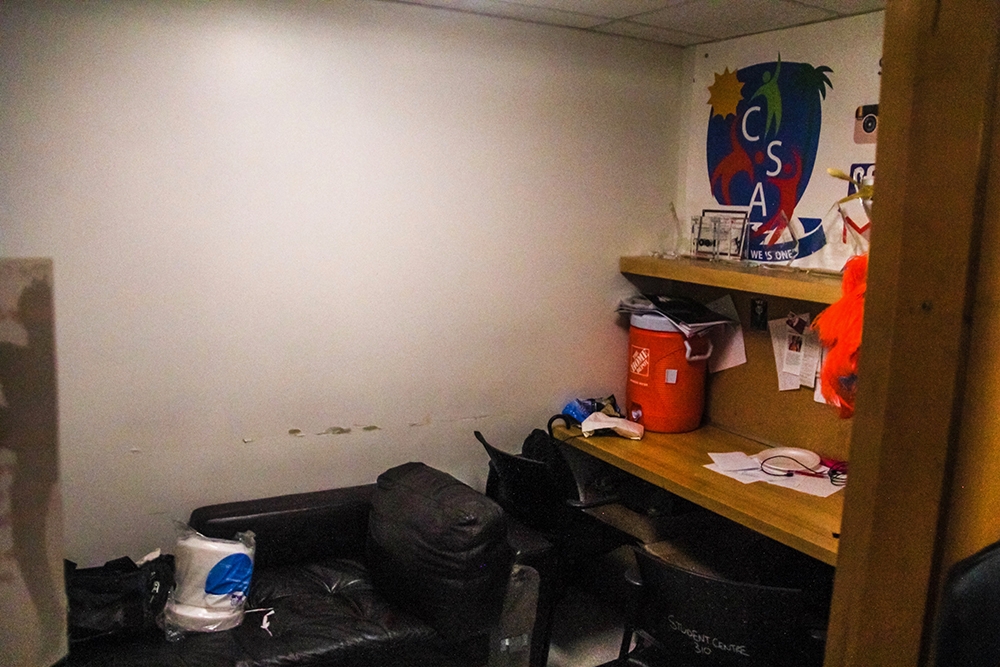Kanchi Uttamchandani | Assistant News Editor
Featured image: Space is a critical yet limited resource for campus groups. | Amir Yazdanparast
Cramped office spaces in the Student Centre and apparent lack of communication see clubs demanding greater transparency in the way space is allocated each year. Over 50 student clubs are housed in the Student Centre, or YUSC, but their office spaces are renewed annually on an application basis.
“Office allocations are determined by an allocation committee comprised of the YUSC Chairperson, YUSC Executive Director, YUSC Executive Officer, YUSC Clubs and Services Representative and YFS President or YFS VP Equity and Services,” reads YUSC’s online statement on club office spaces.
“There are more student clubs and organizations than available office spaces. Since office space is in high demand, it is allocated annually,” the website continues.
Nikessa Joseph, promotions representative for the Caribbean Student Association, or CSA, says her club deserves more space because it has a large and active membership.
“As far as I know, space allocation is based off of membership, events [and] presence on campus. And I feel like not only CSA, but all cultural clubs are somewhat brushed under the rug when it comes to assessing each club for space allocation and renewal,” alleges Joseph.
“I think the process needs to be better outlined and defined. The persons who are in charge of making these decisions [should] follow through with all steps of the process and properly assess each and every club and association, both cultural and non-cultural,” she asserts.
Nirinina Ngartola, vice president of the African Student Association, says the allocation committee should be more flexible with their deadlines and accommodation of new clubs who may not be fully aware of the process. “It’s just really sad when we see a club not having an office space for a whole year just because they missed the deadline the year before,” she says.
“The process definitely needs to be more transparent and less bureaucratic, because we are all students and we are trying our best to keep our club active for our members and us,” she adds.
While clubs with offices press for more clarity and accountability in the space delegation process, other clubs, including Hasbara at York, a pro-Israel advocacy group, have no space at all.
Hasbara president Rena Silver says it has been a difficult process to be granted office space, remarking that club members could really utilize the space if they had it.
“If there were a reason provided or additional steps for next time listed with the rejection, that would likely make it easier for us to understand why we were denied space and how we could attain it for the upcoming year,” she says.
Despite being handed the short end of the stick, clubs continue their efforts to remain active on campus.
“We work as a board in temporary spaces, room bookings, and Internet forums. We use our executives homes to store things we can’t keep at school,” adds Silver.
“We have no choice but to manage.”
The YFS and YUSC did not respond to repeated requests for comments.




